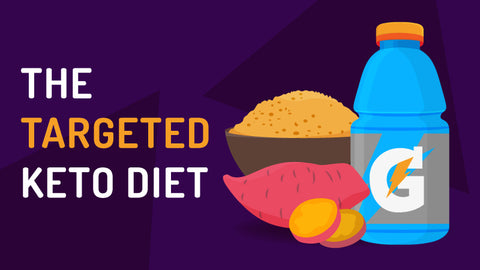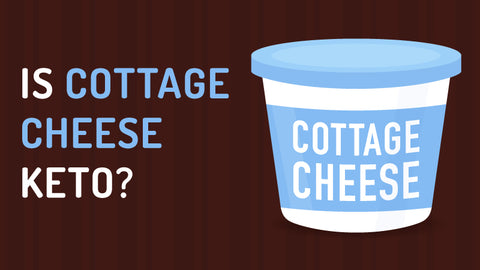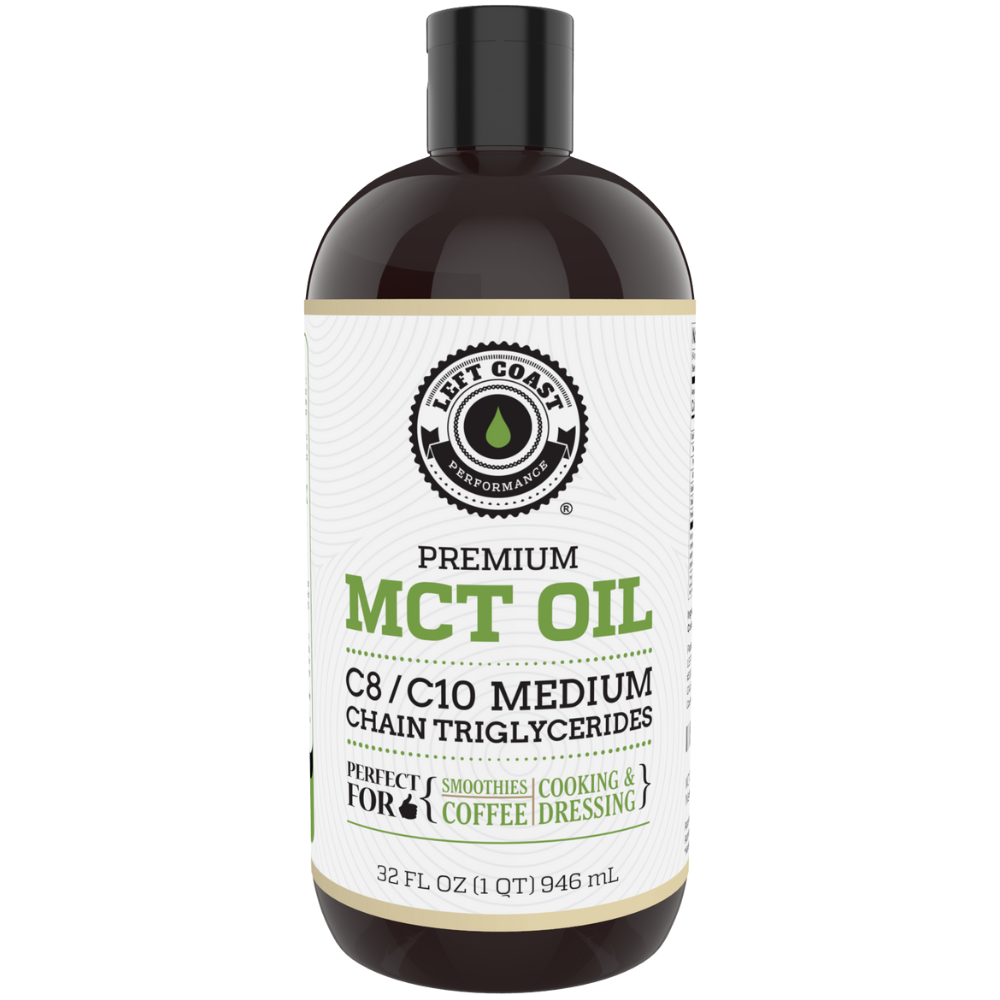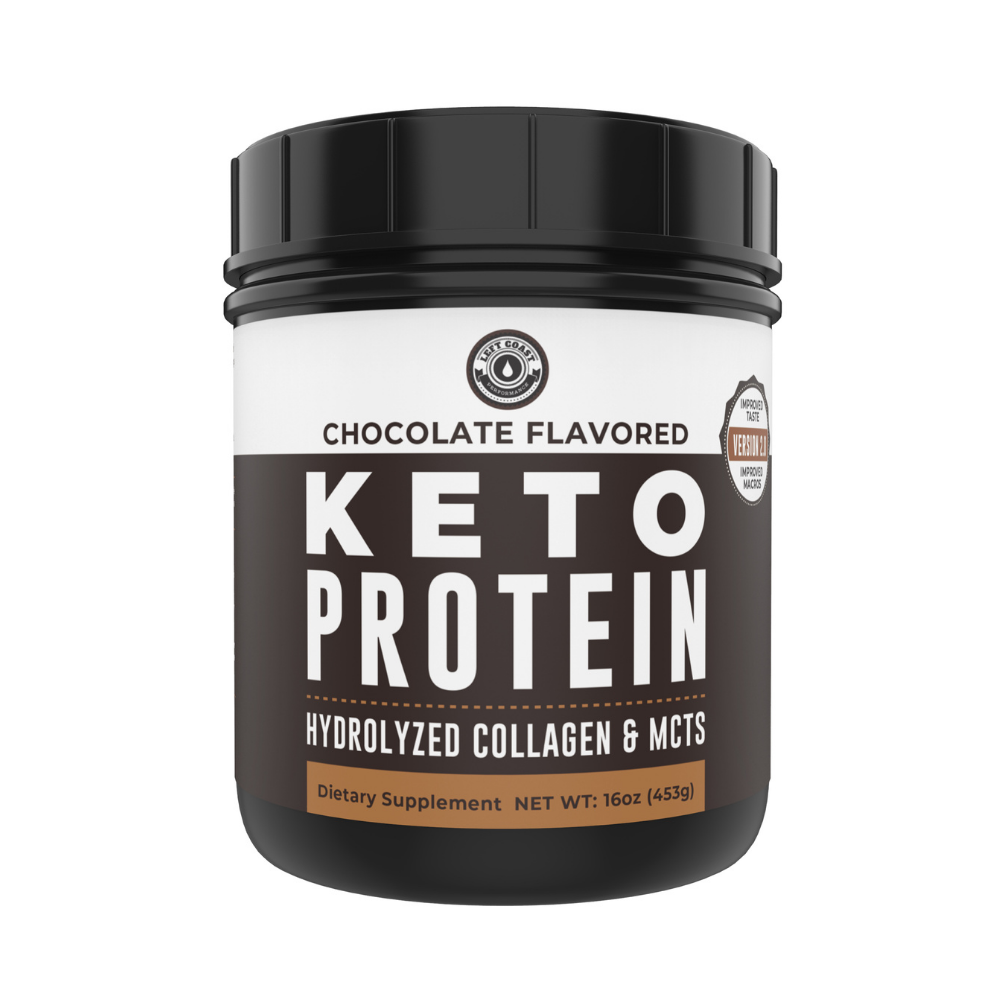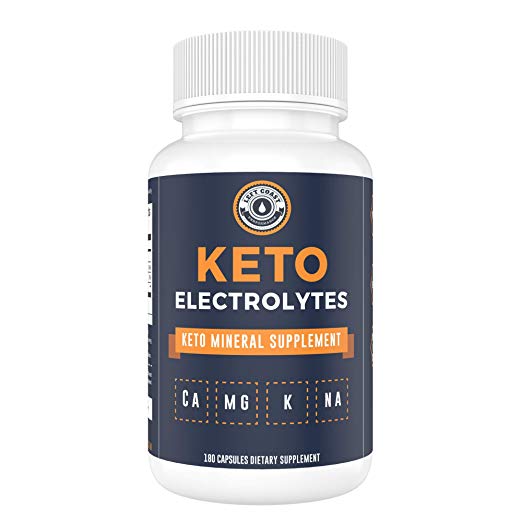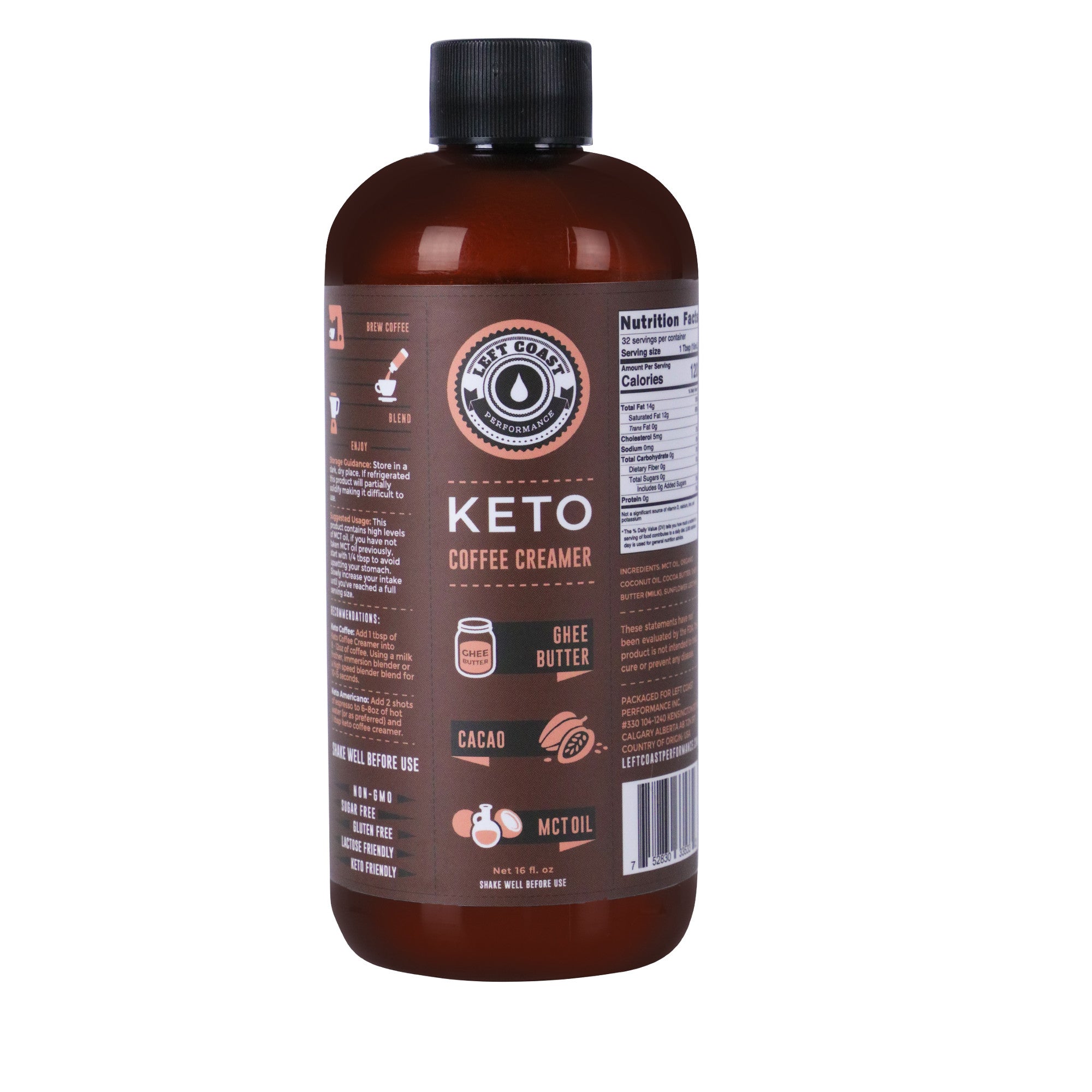How To Get More Magnesium On The Keto Diet
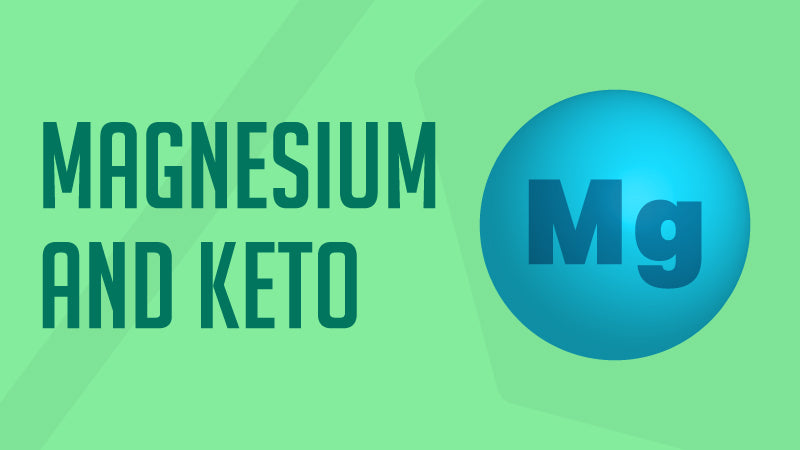
on November 01, 2019
If you follow a low carb diet — like the keto diet — you may run the risk of depleting your magnesium stores if you're not replenishing your electrolytes and eating a variety of magnesium-rich foods like nuts, seeds, leafy green vegetables, and fish.
Some of the signs of magnesium deficiency include nausea, fatigue, weakness, loss of appetite, muscle cramps, and migraine headaches.
Low magnesium levels have been associated with a higher risk of hypertension, heart disease, stroke, diabetes, and osteoporosis, and an increase in low-grade inflammation, which itself can eventually lead to autoimmune disorders and other major diseases. A low-magnesium diet may even alter your gut microbiome, potentially impacting your mood and triggering anxiety.
In this article, we'll explain magnesium's role in the body, and how you can easily integrate more magnesium-rich foods into your ketogenic diet.
What is Magnesium?
Magnesium is a mineral and electrolyte essential for the health of our skeletal, cardiovascular, and nervous systems. It plays a role in our energy levels, makes proteins, repairs DNA, and may even boost our mood and help us relax.
One of the most common reasons for magnesium deficiency is the general lack of whole foods in one's diet.
Magnesium is considered one of seven essential macrominerals, meaning the body can't produce it naturally in high enough quantities, so we rely on dietary sources.
The human body itself contains around 25 grams of magnesium. Approximately 50 - 60% of it is stored in the skeletal system, while the remaining amount is found in muscles, soft tissues, and bodily fluids.
Why Is Magnesium Important?
A diet rich in magnesium has been shown to increase mineral bone density, lower blood pressure, reduce inflammation, and reduce the risk of heart disease, along with several other health benefits.
Let's highlight some key roles magnesium plays in the body.
Essential for Bone Health
Magnesium is required for healthy bones. It works closely with vitamin D to help the body absorb calcium and build and support healthy bones and teeth. Individuals who consume more magnesium have been shown to have higher bone mineral density — reducing the risk of fractures and osteoporosis.
Important Relationship with Calcium
The relationship between magnesium and calcium goes even further. Magnesium helps ensure that calcium stores in the body stay at an optimal level so as not to cause calcification in the arteries or kidney stones.
Researchers have suggested calcium to magnesium ratios should be a maximum of 2:1 — anything above this ratio is associated with an increased risk of inflammation and metabolic and cardiovascular disorders.
For this reason, if you're taking calcium supplements, it's best to choose a supplement that also offers magnesium. However, we strongly encourage you to seek medical advice from your doctor before introducing new supplements to your diet if you're on any medication or treating a health condition.
Regulates Heartbeat and Muscle Contractions
Like its fellow electrolyte potassium, magnesium conducts nerve impulses for muscle contractions and regulating the heartbeat.
Again, magnesium works hand in hand with calcium, which stimulates heart contractions. Magnesium counters these contractions by allowing the muscle cells to relax. If your magnesium levels are too low, it could lead to an irregular heartbeat.
This dual effect works in muscles throughout the body, as well. Magnesium helps relax your muscles, so too little could lead to cramps or spasms. That said, increasing your magnesium intake with supplements alone may not necessarily treat muscle cramps.
Regulates Blood Pressure
Magnesium helps blood vessels relax, which can have a significant effect on blood pressure.
Several studies have found that magnesium supplementation can lower blood pressure in both healthy adults and those with hypertension. This may be one primary reason why other studies have found that people who consume more magnesium have a lower risk of stroke and heart failure.
Regulates Blood Sugar Levels
Increased dietary magnesium intake is also associated with a reduced risk of diabetes.
This is likely linked to magnesium's role in regulating insulin. Magnesium supplementation has shown to lower blood sugar levels in people with type 2 diabetes.
Promotes Relaxation and Promotes Sleep
Magnesium can activate the parasympathetic nervous system (the rest and digest system).
Not only is magnesium a natural muscle relaxer, but it also increases GABA (gamma-aminobutyric acid), which functions as an inhibitory neurotransmitter to block excitatory neurotransmitters such as glutamate — essentially acting as a brake pedal to stimulation in the brain.
Boosts Mood & Other Potential Benefits
There's been an extensive amount of research done to look at several other possible benefits of magnesium. A few have shown promising results in its potential to help reduce migraine headaches, anxiety, and depression.
Signs and Symptoms of the Keto-Flu and Magnesium's Role in Prevention
There are many reasons to go on the keto diet — weight loss, increased athletic performance, or managing chronic illnesses. Whatever the case, many are familiar with the negative side effects of jumping into a ketogenic diet without ample preparation. The most notorious being, the keto-flu.
Keto-flu symptoms often include fatigue, headaches, brain fog, constipation, and insomnia.
These symptoms are commonly caused by dehydration and electrolyte imbalances, including low levels of magnesium. Many of these symptoms can be alleviated by staying hydrated, eating from the food sources, and replenishing your electrolytes with magnesium-rich foods and keto supplements.
Magnesium supplements can be especially helpful when it comes to constipation. Certain supplements, like magnesium citrate and magnesium hydroxide (milk of magnesia), can work as laxatives to soften stools and relieve acute constipation.
Magnesium has a relaxant effect that has the potential to help you get a good night's sleep, which can help you recover faster from your keto-flu symptoms. As mentioned above, magnesium helps activate the parasympathetic nervous system and also regulates the sleep hormone melatonin to get you dozing off in no time. A few studies have found that it may improve sleep quality as well.
How Much Magnesium Do We Need on a Keto Diet?
There are no exact recommended magnesium amounts recommended specifically for a ketogenic diet. We'll be looking to the American recommended dietary allowance (RDA) for guidance here — but one thing is for sure, the standard American diet is likely deficient in magnesium.
Researchers believe about half of the American population is barely consuming half of the magnesium RDA, especially if their diet is high in processed foods, refined grains, and sugar.
However, even when you cut out all of that nutrient-poor food in favor of the low carb, keto diet, you could still be lacking in the mineral if you aren't supplementing your high-quality fats and proteins with magnesium-rich foods.
The RDA of magnesium varies depending on your age and gender. Typically, men require more than women. Here's a breakdown of the recommendations:
CHILDREN
|
AGE |
Recommended Dietary Allowance (RDA) |
|
1-3 years |
80 mg/day |
|
4-8 years |
130 mg/day |
|
9-13 years |
240 mg/day |
FEMALES
|
AGE |
Recommended Dietary Allowance (RDA) |
|
14-18 years Pregnant |
360 mg/day 400 mg/day |
|
19-30 years Pregnant |
310 mg/day 350 mg/day |
|
31 years and over Pregnant |
320 mg/day 360 mg/day |
MALES
|
AGE |
Recommended Dietary Allowance (RDA) |
|
14-18 years |
410 mg/day |
|
19-30 years |
400 mg/day |
|
31 years and over |
420 mg/day |
How to Get Magnesium on a Keto Diet
The best and easiest way to increase magnesium intake for keto dieters is to simply eat more whole foods that are high in the mineral, including nuts, seeds, vegetables.
While legumes and whole grains are high in magnesium, you want to limit these food groups because they're likely to push you over your daily net carb intake.
Instead, you'll want to focus on keto-friendly foods like leafy greens, pumpkin seeds, and even dark chocolate — all of which are rich in magnesium and come with plenty of other health benefits.
Keto Foods High in Magnesium
These keto foods are all excellent sources of magnesium. We've included the amount of magnesium and net carbs for each in a serving of 3.5 ounces (100 grams) unless otherwise stated.
|
Nuts & Seeds |
Magnesium (mg) |
Net Carbs (g) |
|
Pumpkin seeds (1 oz) |
150 mg |
3.9 g |
|
Sunflower seeds (1 oz) |
91 mg |
3.2 g |
|
Cashews (1 oz) |
82 mg |
8.3 g |
|
Almonds (1 oz) |
75 mg |
2.7 g |
|
Macadamia nuts (1 oz) |
36 mg |
1.6 g |
|
Flax seeds (1 tbsp) |
27 mg |
0.1 g |
|
Veggies & Fruits |
Potassium (mg) |
Net Carbs (g) |
|
Cooked spinach |
87 mg |
1.3 g |
|
Cooked Swiss chard |
86 mg |
2.0 g |
|
Raw Swiss chard |
81 mg |
2.1 g |
|
Raw spinach |
79 mg |
1.4 g |
|
Arugula |
47 mg |
2.1 g |
|
Raw kale |
34 mg |
5.2 g |
|
Avocado |
29 mg |
1.8 g |
|
Meat & Fish |
Potassium (mg) |
Net Carbs (g) |
|
Cooked yellowfin tuna |
64 mg |
0 g |
|
Cooked wild salmon |
37 mg |
0 g |
|
Shrimp |
34 mg |
0 g |
|
Canned tuna |
33 mg |
0 g |
|
Cooked wild trout |
31 mg |
0 g |
|
Top sirloin steak |
22 mg |
0 g |
|
Miscellaneous |
Potassium (mg) |
Net Carbs (g) |
|
Dark chocolate, 70-85% cacao (1 oz) |
64 mg |
9.7 g |
Magnesium Supplements
Beyond getting magnesium in your diet, there are several magnesium supplements on the market that may target your body's needs better than a multivitamin.
The National Academy of Medicine recommends supplementing with no more than 350 mg of magnesium per day. Higher doses could cause diarrhea, nausea, and abdominal cramping, so be sure you're paying attention to how much magnesium you're consuming.
Below is a guide to the most common types of magnesium supplements and which may be best to support your keto diet.
Note: Magnesium supplements may not be safe for those who take diuretics, heart medications, or antibiotics. Anyone who takes these medications or has diabetes, intestinal disease, heart disease, or kidney disease should seek medical advice from their physician before taking any magnesium supplement.
Which Type of Magnesium Supplement Is Best for Keto?
There are many forms of magnesium supplements available. Some are more bioavailable than others, meaning its better tolerated and easily used in the body.
According to a few studies, magnesium citrate, magnesium lactate, and magnesium chloride are better absorbed in the body over magnesium oxide and magnesium sulfate.
However, other forms, like magnesium acetyl taurate and magnesium malate, have shown some of the fastest absorption rates and longest-lasting effects. That said, data for the bioavailability of each form is still somewhat limited.
So, you'll want to pick your supplement according to what you're hoping it will do beyond provide you with magnesium.
For example, a magnesium glycinate supplement is a good option if you're having difficulty sleeping because it's bound to glycine, an amino acid known to improve sleep quality.
Here's a quick breakdown of what magnesium supplements may be best for absorption, constipation, and more:
For High Absorbability:
- Magnesium citrate
- Magnesium glycinate
- Magnesium chloride
For Constipation:
- Magnesium citrate
- Magnesium oxide (though is poorly absorbed)
For Relaxation & Muscle Soreness:
- Magnesium citrate
- Magnesium malate
- Magnesium sulfate (Epsom salts)
For the Heart:
- Magnesium orotate
- Magnesium taurate
For the Brain:
For Good Sleep:
- Magnesium glycinate
Magnesium Drink Powders
Magnesium supplements are also available in powdered form, often as magnesium citrate or magnesium glycinate, both of which can be mixed with water or juice.
This may be a convenient way to increase your body's magnesium stores — but, frankly, magnesium supplements don't typically taste all that good. Some brands may claim that their powder is more easily digested; however, no studies have been done to show whether taking a magnesium powder absorbs better or more quickly than other supplements.
Exogenous Ketones
Another way to get your magnesium is with Beta-Hydroxybutyrate (BHB) salt ketone supplements. These contain around 20% of the recommended daily dose of magnesium as well as other significant electrolytes, including potassium, sodium, and calcium. BHB salts help you achieve and maintain ketosis and can be especially helpful for replenishing your body's electrolytes, keeping your energy levels high, and alleviating keto-flu symptoms.
Low Magnesium & High Magnesium Risks
Your body requires a constant supply of magnesium for optimal function because our bodies don't make adequate amounts of it.
If you're not consuming enough magnesium-rich foods, you could experience signs of magnesium deficiency.
Conversely, if you're mostly dependent on supplements, you could run the risk of getting too much magnesium leading to negative side effects.
Low Magnesium Signs & Symptoms
The kidneys help regulate the body's magnesium levels and eliminate excess magnesium through urine. When you lose a large amount of water — like what happens when your body goes into ketosis — you risk mineral deficiency and electrolyte imbalance.
Magnesium deficiency, or hypomagnesemia, is diagnosed when the blood level of magnesium is less than 0.6 mmol per liter. While this is rare, oftentimes hypomagnesemia goes undiagnosed since signs don't typically show up until levels are extremely deficient.
Still, researchers believe that the majority of Americans are not meeting the daily recommended intake and have low magnesium levels. This may contribute to fatigue and muscle weakness, as well as:
- muscle cramps and twitches
- nausea and vomiting
- aches and pains
- loss of appetite
- migraines
- sleeping issues or insomnia
- irregular heartbeat.
Over time, chronic low magnesium levels have been linked to lower bone density, osteoporosis, high blood pressure, heart disease, type 2 diabetes, and dementia.
Magnesium deficiency is more likely seen in individuals who take antibiotics, proton pump inhibitors (PPIs), diuretics, or medications for diabetes or cancer. It's also common in those who have:
- kidney disease
- digestive disorders (like Crohn's disease)
- parathyroid disorders
- high blood pressure
- type 2 diabetes.
However, in healthy individuals, it's easy to avoid these risks by incorporating magnesium-rich foods into your keto diet.
High Magnesium Signs & Symptoms
It's nearly impossible to overdose on magnesium from food alone.
Instead, you'll want to be cautious of how much magnesium you're getting from supplementation. High doses of magnesium can cause:
- diarrhea
- nausea
- abdominal cramping
These forms are most commonly reported to cause diarrhea:
- magnesium carbonate
- magnesium chloride
- magnesium gluconate
- magnesium oxide.
High magnesium, or hypermagnesemia, occurs when a blood level of magnesium is higher than 1.1 mmol per liter.
This is most likely to occur in people who have a chronic condition like kidney disease. Anyone with a kidney disorder should not take magnesium supplements unless prescribed by a doctor.
Symptoms of hypermagnesemia include:
- nausea and vomiting
- diarrhea
- low blood pressure
- muscle weakness
- fatigue
- urine retention.
Healthy individuals can easily avoid these risks if they're getting their magnesium via whole foods, a balanced electrolyte supplement, or keto supplements.
In Conclusion: Get Your Fill of Magnesium-Rich Foods
Magnesium is involved in hundreds of critical bodily functions — from maintaining energy levels, building proteins, and even managing stress and sleep.
It's an essential mineral that plays a key role in supporting bone and muscle health, regulating your heartbeat, blood pressure, and blood sugar, and calming both your nervous system.
It's also an important electrolyte that can help you kick the keto flu and alleviate symptoms like constipation and insomnia.
When consuming a low-carb keto diet, it's essential to add an abundance of magnesium-rich foods like seeds, nuts, leafy greens, fish, and even — thankfully! — a little dark chocolate.



